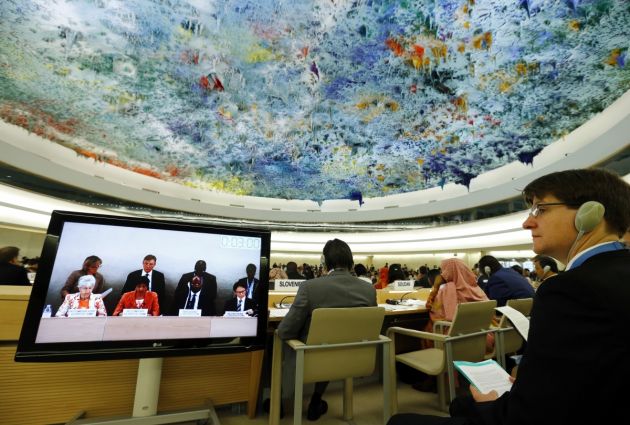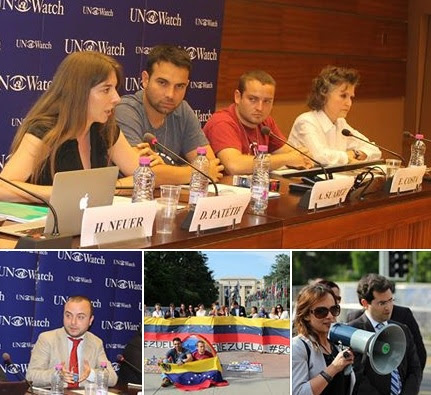UN hears testimony that contradicts Cuban account of dissident's death

The United Nations Human Rights Council, currently sitting in Geneva, has heard testimony from leaders of the Venezuela protest movement and from the survivor of the car crash that killed Cuban dissident Oswaldo Payá.
The hearings on human rights in Venezuela and Cuba, was organized by a coalition of NGO's as an official event inside the Human Rights Council in Geneva on June 17.
Keith M. Harper, the U.S. representative to the United Nations Human Rights Council in Geneva said, "We reiterate our call for an independent international investigation into the death of Oswaldo Payá.
"We have a simple question: What is Cuba afraid of?"
Eusebio Costa 22-year-old student activist, President of the Student Center at the Catholic University Santa Rosa in Caracas; member of the protest camp in Las Mercedes spoke before the rights council.
"We came to Geneva to ask the U.N. to send a mission to Venezuela to evaluate the cases of human rights violations that students have been subjected to.
"[The Venezuelan government] has been talking about a conspiracy that we are part of a war, that we were sent here by the CIA, which we weren't.
"Thirty-two people were murdered while protesting; I hope that the United Nations will not remain indifferent to violations in Venezuela."
Alejandro Suarez Teppa, a 33-year-ol Venezuelan philosophy student and protest camp leader said he was arrested and brutally detained last month.
"We were afraid to come here today," he said.
UN WATCH
The event was organized by the Geneva-based rights group U.N. Watch, and co-sponsored by the German NGO International Society for Human Rights, Iniciativa por Venezuela, the Human Rights Foundation, Humano y Libre, and Directorio.
Ángel Francisco Carromero Barrios, a Spanish politician and driver of the car in which Payá was killed said, "We ask the Council to condemn the arbitrary arrest of Jorge Luis García Pérez."
Cuban authorities detained and assaulted him said Pérez. He was released on June 13, but was again arbitrarily arrested and detained on June 15.
Regarding the crash Carromero said, "The main road has huge holes, but the Cuban government said we were going 160 kilometer per hour (100 miles per hour), which is impossible.
"The accident took place two years ago and the family hasn't had any access to the autopsy; I'm asking you to have common sense."
At the time of the crash, the Cuban government's International Press Center released a statement saying that the driver of Payá's car had lost control and hit a tree.
But members of his family and other witnesses asserted that the car was rammed a number of times by another vehicle and driven off the road.
Payá, a Roman Catholic, founded the Christian Liberation Movement, known by its Spanish acronym MCL (Movimiento Cristiano Liberación) in 1988 along with a group of secular Catholics from Havana's Cerro parish.
In August 125 global leaders called on U.N. Secretary General Ban Ki-moon and Human Rights Commissioner Navi Pillay, along with all 193 member nations, to support an international investigation into Payá's death in the July 2012 car crash in Granma Province.
Carromero survived the crash and was accused by the Cuban government of vehicular homicide.
A Cuban representative at the rights' council said, "This is clearly a program of the United States to undermine Cuba, and they have given these speakers money to participate.
"Angel Carromero, the U.S. is your boss."
The executive director of UN Watch Hillel Neuer said, "Despite the real risk of reprisal back home, and insults hurled at them here at the U.N. by their own countries' delegates, the students succeeded in speaking truth to power."

